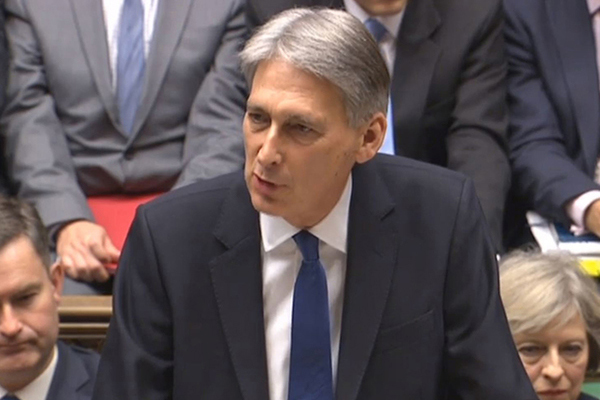You are viewing 1 of your 1 free articles

Private shared ownership needs to retain social ethos
As the government consults on opening up the shared ownership market, Amy Nettleton sees an opportunity for the sector if we get the balance right
The Autumn Budget last week was another positive political moment for the housing sector.
The removal of stamp duty for shared ownership properties valued under £500,000 and the renewed focus on supporting small and medium-sized house builders were just two of several very encouraging announcements made by the chancellor.
In a year that’s also seen the Social Housing Green Paper launch, housing certainly seems to be a key focus in Westminster.
The call for proposals for private shared ownership schemes launched alongside the budget, which will allow commercial house builders to market the model, is further proof of this.
“While opening up the shared ownership market more fully is an exciting prospect, it’s vital that the social purpose behind it – to give more people security and an equity stake in their home – is kept front of mind.”
Our recent report on shared ownership called for the government to do more to drive its growth, so we are certainly in favour of any initiatives that seeks to do that.
But the strengths of the existing model must remain intact.
While opening up the shared ownership market more fully is an exciting prospect, it’s vital that the social purpose behind it – to give more people security and an equity stake in their home – is kept front of mind.
The shared ownership model that exists now has been developed over the past 40 years. This organic process has resulted in a tried and tested scheme that has earned a level of trust not achieved by more recent housing programmes.
This is evidenced not only by the government’s renewed focus and removal of restrictions on it, but also by the 20 to 30 mortgage lenders in the UK that offer tailored shared ownership products.
It’s important that any new approaches to shared ownership don’t lose sight of this, and erode trust by prioritising profit over the interests of the homeowner.
Working with a number of private house builders, we understand that their motives can be different to those of a housing association.
They are businesses that need to make a healthy return on investment, keep shareholders happy and fuel growth.
Some of our most successful projects have been joint ventures with private house builders because they balance the ambition and drive of a for-profit business with the social purpose of a housing association.
“We need to stop using staircasing as the sole barometer of success.”
This is an approach we’d like to see taken forward by organisations responding to the government’s call for proposals.
One aspect of the consultation that risks losing sight of shared ownership’s true value is the over-focus on ‘staircasing’ – the process of growing an equity stake.
A popular criticism is that not enough people staircase to full ownership. I strongly believe this fails to grasp the purpose of shared ownership and we need to stop using staircasing as the sole barometer of success.
It isn’t just a stepping stone to full ownership. It provides a home for life regardless of whether the buyer becomes a full owner or not.
Some will never increase their share of equity beyond their original purchase, and making that choice isn’t a problem. They are still benefitting from the security of owning a stake in their home, they can still make changes to the property that could increase its value and they can still sell it if they wish.
If the government places too much emphasis on staircasing when reviewing shared ownership proposals, we risk people being warned off the scheme because full ownership isn’t attainable for them.
It’s also important to note that our experience of delivering shared ownership doesn’t reflect the criticism. We sell more than 350 new shared ownership homes each year and a further 150 resales, demonstrating a healthy secondary market.
The government’s call for proposals is another opportunity for housing associations to take the lead on shared ownership by partnering with house builders.
Builders can tap into housing associations’ expertise in affordable housing and share the financial risk associated with new projects.
“The government’s call for proposals is another opportunity for housing associations to take the lead on shared ownership.”
The government now has an opportunity to deliver changes that help to balance the private sector’s need to deliver profitable housebuilding schemes with our sector’s social purpose of delivering affordable properties.
And local authorities have an important role to play, too. The scrapping of the borrowing cap has empowered them and, by drawing on this increased spending power, there is the potential to form a formidable double act with local housing associations.
“The government has an opportunity to deliver changes that help to balance the private sector’s need to deliver profitable housebuilding schemes with our sector’s social purpose.”
Though many councils have the appetite to deliver more homes in their area, they may lack the experience to do so, which makes housing associations the crucial players by providing the skills and capacity, thereby boosting the market.
The housing sector – social or otherwise – should view the government’s call for shared ownership proposals positively.
Yet its success will depend on the social ethos that underpins shared ownership being strengthened, not weakened, by the proposals.
Amy Nettleton, assistant development director of sales and marketing, Aster Group
Autumn Budget 2018 - full coverage
All our Autumn Budget 2018 coverage in one place:
The Autumn Budget lacked the ambition we need Philip Hammond’s Budget fell short for housing, writes Melanie Rees
There were no big fireworks but the Budget offers an opportunity to deliver The Budget leaves associations facing a choice and we must now deliver, argues David Montague
Names of new housing association strategic partnerships revealed Homes England has released the names of the eight housing associations that have just signed strategic partnerships with the government.
Budget a missed opportunity on housing, says NHF Reaction to the Autumn Budget from several organisations, including the National Housing Federation
Budget small print reveals significant announcements for housing Housing policies contained in the Autumn Budget and background documents published yesterday will have a large impact, if they actually go ahead, writes Jules Birch
Hammond’s extra Universal Credit cash is welcome – but we need homelessness specialists in Job Centres too The Autumn Budget must not become a missed opportunity to put in place measures to prevent homelessness, argues Ruth Jacob of Crisis
Hammond announces extra funding for Universal Credit: Philip Hammond has announced plans to pump more money into Universal Credit in the Autumn Budget today.
Help to Buy equity loan scheme extended to 2023 for first time buyers:The Help to Buy equity loan scheme will be extended two years to 2023 for first time buyers only, with new price caps set for each English region.
Housing Live - the Autumn Budget 2018 as it happened: Live-blogging from Jules Birch reveals how the Autumn Budget unfolded and what it means for housing
OBR: scrapping council borrowing cap will deliver only 9,000 new homes: Scrapping the borrowing cap will deliver only 9,000 new homes over the next five years, the Office for Budget Responsibility (OBR) has said.
Letwin: builders of large sites must accept more ’diversity’ of tenure: Builders should be required to accept suggested levels of affordable housing for large sites in order to receive government support, including Help to Buy, a major review of housebuilding has concluded.
Chancellor announces strategic partnerships with nine housing associations: Nine housing associations have signed new strategic partnerships with the government to deliver over 13,000 homes, Philip Hammond has announced.
Stamp duty scrapped for buyers of shared ownership homes worth up to £500,000: Stamp duty will be scrapped for first-time buyers of homes for shared ownership, the chancellor has announced.
Autumn Budget 2018 - the key housing policies at-a-glance
- £1bn to help fund the implementation of Universal Credit over the next five years
- £500m in Housing Infrastructure Fund to unlock a further 650,000 homes
- The next wave of strategic partnerships with nine housing associations, which will deliver 13,000 homes
- British business bank guarantees for SME house builders
- ‘Simplification’ of process to convert commercial properties to new homes
- Providing funding to empower 500 neighbourhoods to allocate homes to local people in perpetuity
- Help to Buy equity loan scheme extended by two years to 2023 and limited to first-time buyers
- Retrospective inclusion of first-time buyers of shared ownership in stamp duty relief
A guide to strategic partnerships and the deals announced so far
Under strategic partnerships, housing associations agree to increase their development programmes by a specified number of homes in return for extra funding for the government.
Unlike some other government funding programmes, they can use the new funding flexibly across their development programme, determining the tenure of affordable homes closer to completion following negotiations with Homes England.
The following housing associations were confirmed as strategic partners on 30 January 2019:
| Housing association | Grant | No of additional starts to March 2022 |
|---|---|---|
| Bromford | £66.4m | 1,400 |
| Curo and Swan | £51.1m | 1,067 |
| Liverpool Mutual Homes and Torus | £66.4m | 1,757 |
| Longhurst and Nottingham Community Housing Association | £71.7m | 1,685 |
| Together Housing Group | £53m | 1,152 |
| WHG | £38.7m | 1,000 |
| Yorkshire Housing | £61.8m | 1,300 |
| Your Housing Group | £87.5m | 2,315 |
Homes England announced the following partnerships in October 2018:
| Housing association | Grant | No of additional starts to 31 March 2022 |
|---|---|---|
| Guinness/Stonewater | £224m | 4,500 |
| Optivo | £44.9m | 1,000 |
| Orbit | £128.8m | 2,762 |
| Platform Housing Group | £71.8m | 1,800 |
| Southern Housing Group | £55.1m | 1,005 |
| Thirteen | £40m | 1,000 |
| Vivid | £88.2m | 1,408 |
Table published by Homes England on 31 October 2018
Homes England also earlier this year confirmed the following partnerships:
| Housing association | Grant | No of additional affordable starts to 31 March 2022 |
|---|---|---|
| EMH Group | £30.5m | 748 |
| Great Places | £29.2m | 750 |
| Home Group | £85m | 2,300 |
| Hyde | £95.4m | 1,623 |
| L&Q | £85m | 1,724 |
| Matrix Partnership | £77m | 2,257 |
| Places for People | £74m | 2,603 |
| Sovereign/Liverty | £111.5m | 2,275 |
Table published by Homes England on 3 July 2018














